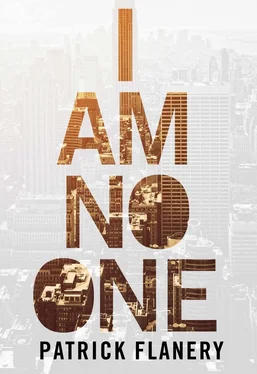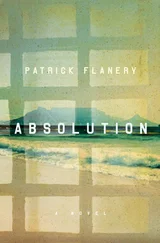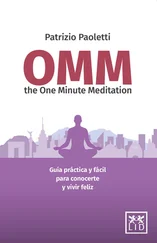‘Can I see the boxes?’ she asks.
‘I gave them to the lawyers. They haven’t returned them.’
‘And this Michael Ramsey? You can contact him?’
‘My son-in-law would know how to reach him, but I hesitate to ask Peter. I don’t entirely trust him. And obviously the phones and email aren’t secure.’
‘A sign in the window?’
‘It sounds like a spy movie.’
‘When did you last see him?’
‘I think I see him on the street every day, but when I try to approach him, he disappears, or I doubt that it’s actually him. For more than a month now I’ve hardly felt sane.’
‘But the last time you spoke with this Mr. Ramsey, he said you should go public?’
‘Yes, in a roundabout way, he suggested running an article in Peter’s magazine, assuming Peter could be convinced to do it, or perhaps the publication of this,’ I say, showing her this very stack of pages, where I write these words, watching my own life, reviewing my own recent history, just as others do. ‘I only wish I could say with certainty who is responsible for watching me. I believe it is the government, but I have no proof. In the end I have no proof of anything, except the files, and those are no longer in my possession.’
Selim is on the carpet again, crawling around and entertaining himself with the toys, so innocent, so unaware of the complexities of his parents’ lives. As I look at him, I vow to myself to be present in a way I was not for my daughter.
‘Does it really matter who is doing it?’ Fadia finally asks. ‘There are some people who live their entire lives in the eye of a camera, broadcasting themselves for strangers to watch. You could do that, you know, install cameras in the apartment, present yourself for the whole world, to demonstrate how ordinary you are, how unsuspicious your life is, how you have nothing to do with whatever it is the government — or Stephen Jahn, or MI5, MI6, the NSA, the CIA, Mossad — think you might be doing. Show them your life, our lives together if you like, to prove the point that there is nothing here to see: just a man and a woman who have a child together, who happen, by no fault of their own, to have a connection to a man who would want nothing to do with them, who would look at the relationship you and I have and condemn us. I have little doubt Saif would do just that, or, like Stephen, threaten to take Selim away, to put me to death for the choices I made, to kill you for what you did with me, or to me, however we want to think of it. Why should we be judged for who Saif has become? I think you must go public, one way or the other. And we can do it together. I will stand beside you,’ she says, her eyes fixed on me with a look of hope, or the intermingling of hope and purpose, and in the spell of her gaze I feel the determination to take what little power we have been granted by Michael Ramsey, if indeed he is the one responsible for all that has transpired, and turn that power back on the powerful.
This text may acquire a life beyond any I would have imagined, not a text solely for my children or my legal defense, but for anyone to read, at any time, on any platform, wherever they may be, whoever they are, if only to prove my ordinariness, my inconsequence, the way I am ultimately like anyone else, like you, coming to the end of this page.
‘Are you willing?’ Fadia says.
‘Yes,’ I say, lifting Selim up from the carpet and kissing his brow, ‘yes.’
NOVEL ENDS
Noah Arlow, Kate Ballard, Rita Barnard, Glenn Breuer, Charles Buchan, Megan Carey, Sarah Chalfant, Zahid R. Chaudhary, Justin Cornish, Nadia Davids, Karen Duffy, Tim Duggan, Gail L. Flanery, James A. Flanery, Thomas Gebremedhin, Lucy Valerie Graham, Neville Hoad, Chris Holmes, Michael Holtmann, Suvir Kaul, Thomas Knollys, Ania Loomba, Peter McCullough, Beatrice Monti della Corte von Rezzori, Neel Mukherjee, Rebecca Nagel, Roger Palmer, Angela Rae, James Roxburgh, Adrianne Rubin-Arlow, Paul Saint-Amour, Deborah Seddon, Tamsin Shelton, Margaret Stead, Eddie van der Vlies, Nan van der Vlies, Undine S. Weber, Zoë Wicomb, Will Wolfslau, Andrew Wylie, Robert J.C. Young, Alba Ziegler-Bailey, and everyone at Atlantic Books, Crown, and The Wylie Agency.
Special thanks, as ever, to Andrew van der Vlies.
Patrick Flanery was raised in Omaha, Nebraska. He studied Film at New York University’s Tisch School of the Arts and earned a PhD in Twentieth-century English Literature at the University of Oxford. He contributes articles to a number of academic journals and has written for Slightly Foxed , the Daily Telegraph and the Times Literary Supplement . He has published two novels to critical acclaim; Absolution in 2012 and Fallen Land in 2013. He lives in London.












